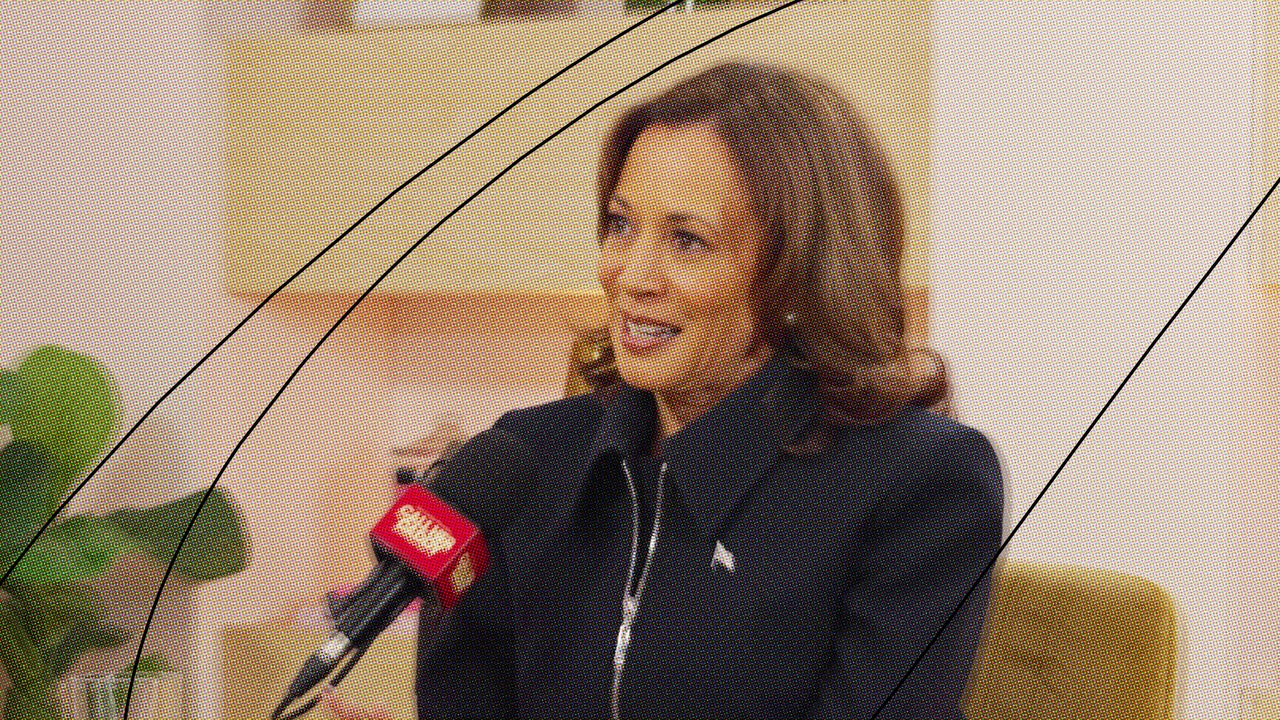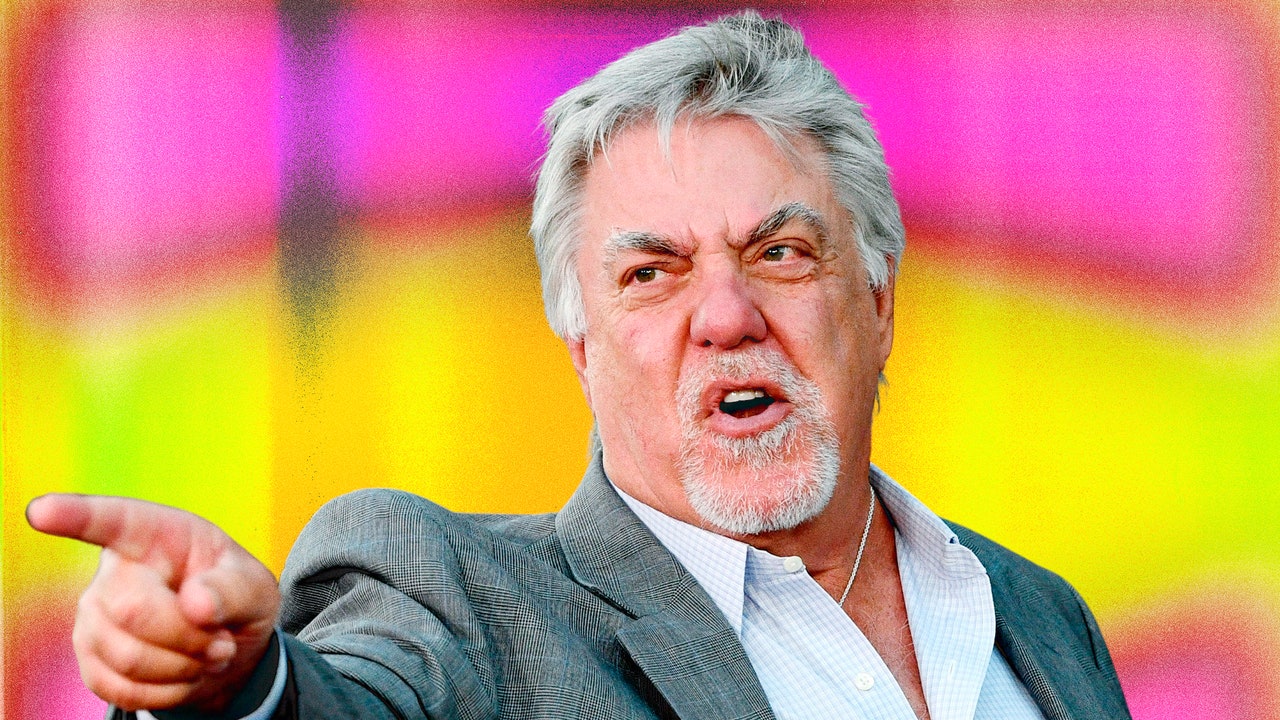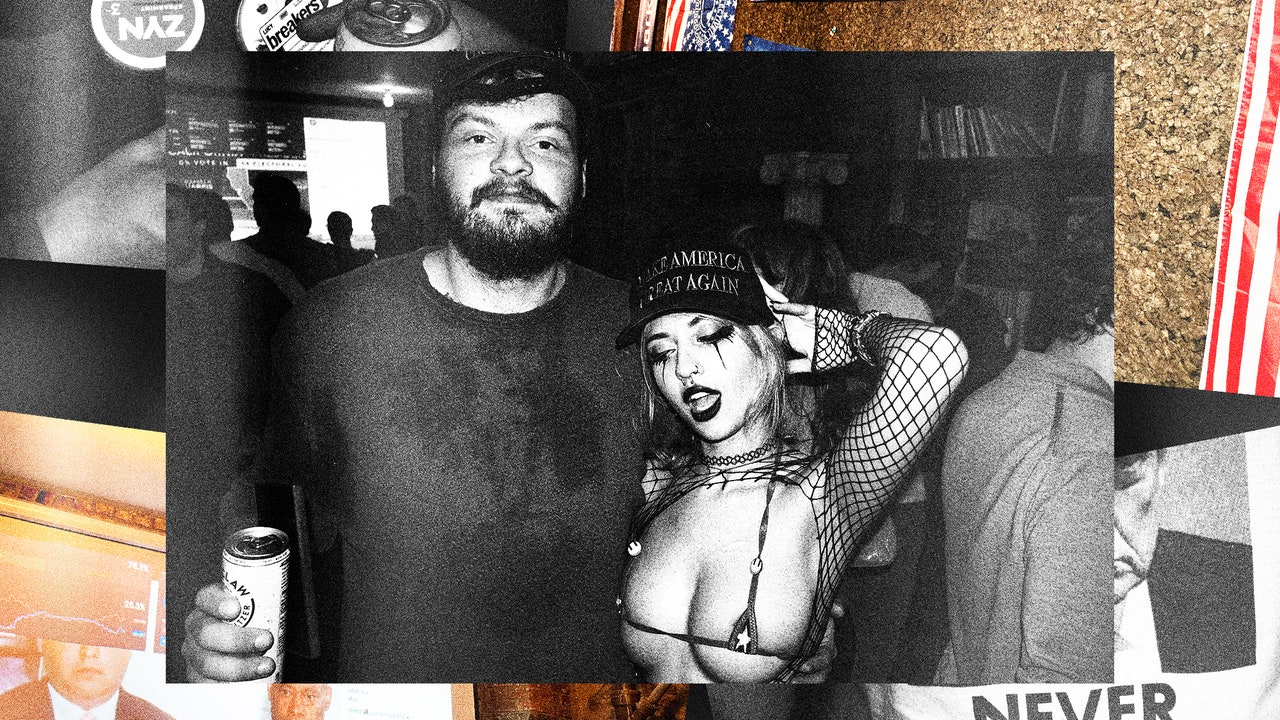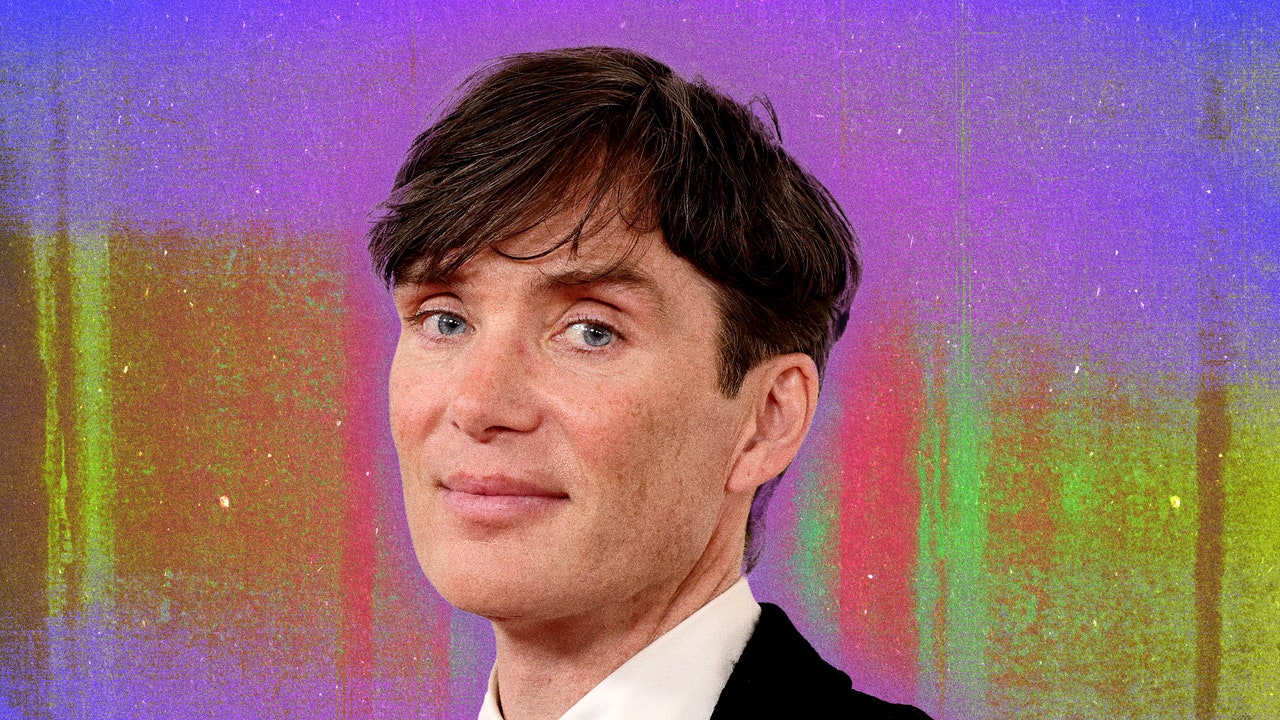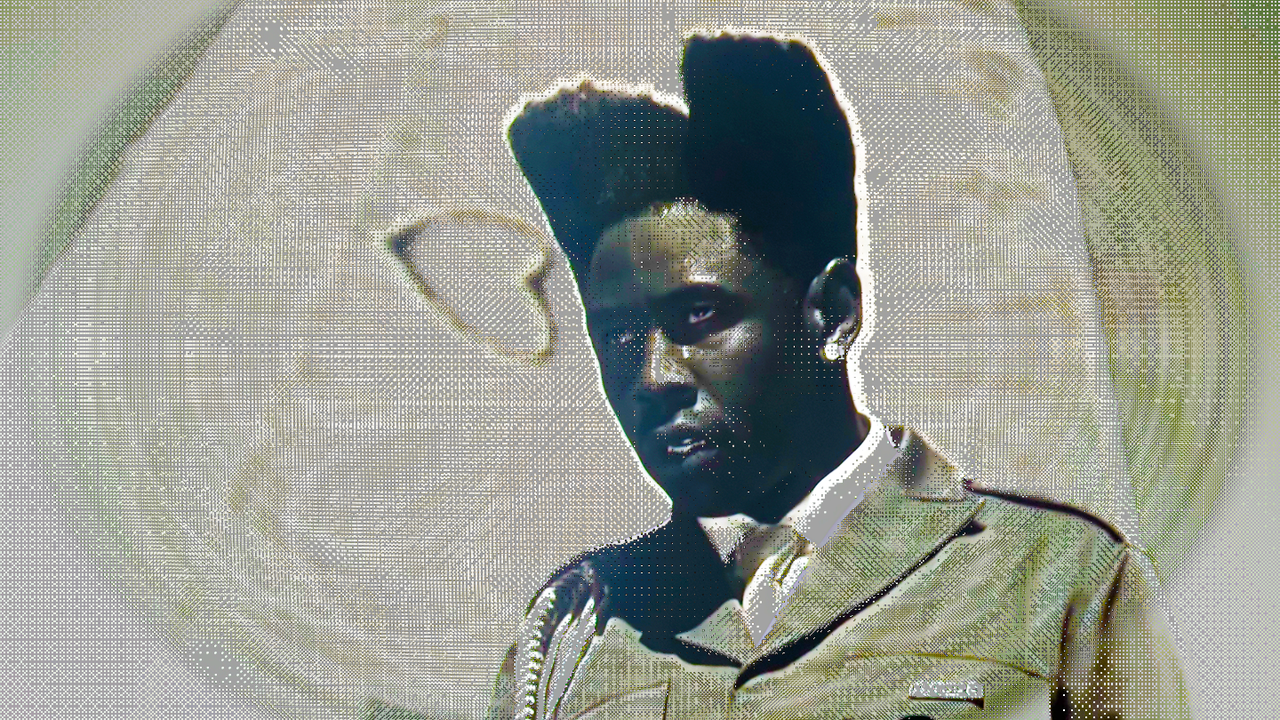The presidential election is in full swing, and it’s an all-out sprint to the finish. While Donald Trump is busy releasing gaudy $100,000 gold watches and inviting Elon Musk, aka Tommy Pickles, to jump next to him at rallies, Kamala Harris is giving interviews. Lots of them—often in formats that stray quite far from the composed and calculated style of 60 Minutes. On Tuesday, she did The View, Howard Stern’s radio show, and The Late Show With Stephen Colbert.
The week kicked off Monday with a 40-minute sit down on “Call Her Daddy,” the immensely popular podcast hosted by Alex Cooper. Originally an advice show on the polarizing Barstool Sports network about blowjobs and dating athletes, it has grown since the departure of Cooper’s original cohost Sofia Franklyn into a one-woman show more known for softball celebrity interviews and selling a staggering amount of sweat suits that say “Unwell” on them. Cooper is making a fortune, and she pulls in the ears and eyeballs to back it up. (Cooper’s show is the second-biggest podcast on Spotify, behind Joe Rogan’s, and the most-listened-to by women.) Her demographic is locked in, and she—for better or worse—is their primary news source.
The show doesn’t typically touch politics. “Daddy Gang,” she began her latest episode, “as you know, I do not usually discuss politics or have politicians on this show because I want Call Her Daddy to be a place where everyone feels comfortable tuning in.” Cooper clarified that she’d asked both candidates to come on the show, but only Harris agreed. As for the interview itself: MSNBC it was not, but they talked about abortion rights, the high cost of housing, and Republican attacks on “childless cat ladies.” Like any of these interviews, the questions were written by producers and vetted by Harris’s team. There were no surprises because we can’t and don’t expect our highest-ranking political officers to be quick on their feet. Regardless, it was a smart move for Harris, whose team realizes that you have to meet people where they are. It’s the equivalent of Trump appearing on Theo Von’s podcast, which currently has 13 million views on YouTube. Traditional media still serves a purpose, but this is the new way.
On Tuesday Harris appeared on The Howard Stern Show on paywalled satellite radio station SiriusXM. The idea of a serious presidential candidate sitting down for a tete-a-tete with the author of Private Parts would have been unthinkable during the show’s raucous and controversial heyday—when Stern regularly took gossippy calls from a civilian Donald Trump, ironically enough—but the show has matured quite a bit. It reaches an important demographic not dissimilar from the one targeted by the hilariously-named “White Dudes for Harris” initiative, which began in July with a Zoom call that drew roughly 200,000 attendees, including Mark Ruffalo, Jeff Bridges and Josh Groban. On Stern’s show, after the host pledged his vote, Harris called Trump a “sore loser,” and bravely revealed that her favorite breakfast cereal is Special K.
Tuesday also saw Harris appear on The View, where she played to the audience by discussing her plans to expand Medicare to cover in-home healthcare for seniors. I didn’t have time to watch her on The Late Show With Stephen Colbert— I have a life. But Colbert’s introduction went viral; seated on a mock-60 Minutes set, he set up the Harris interview in his most sober news-anchor voice, then added, “In the interest of fairness, we also invited former President Donald Trump to go [bleep] himself.” You don’t get an intro like that on a traditional news show.
Will the media blitz work? I couldn’t tell you, but this press cycle has solidified non-traditional media as a must for politicians seeking the highest office in the land. Podcasts used to be for reality television stars and stand up comedians, but times have clearly changed.




